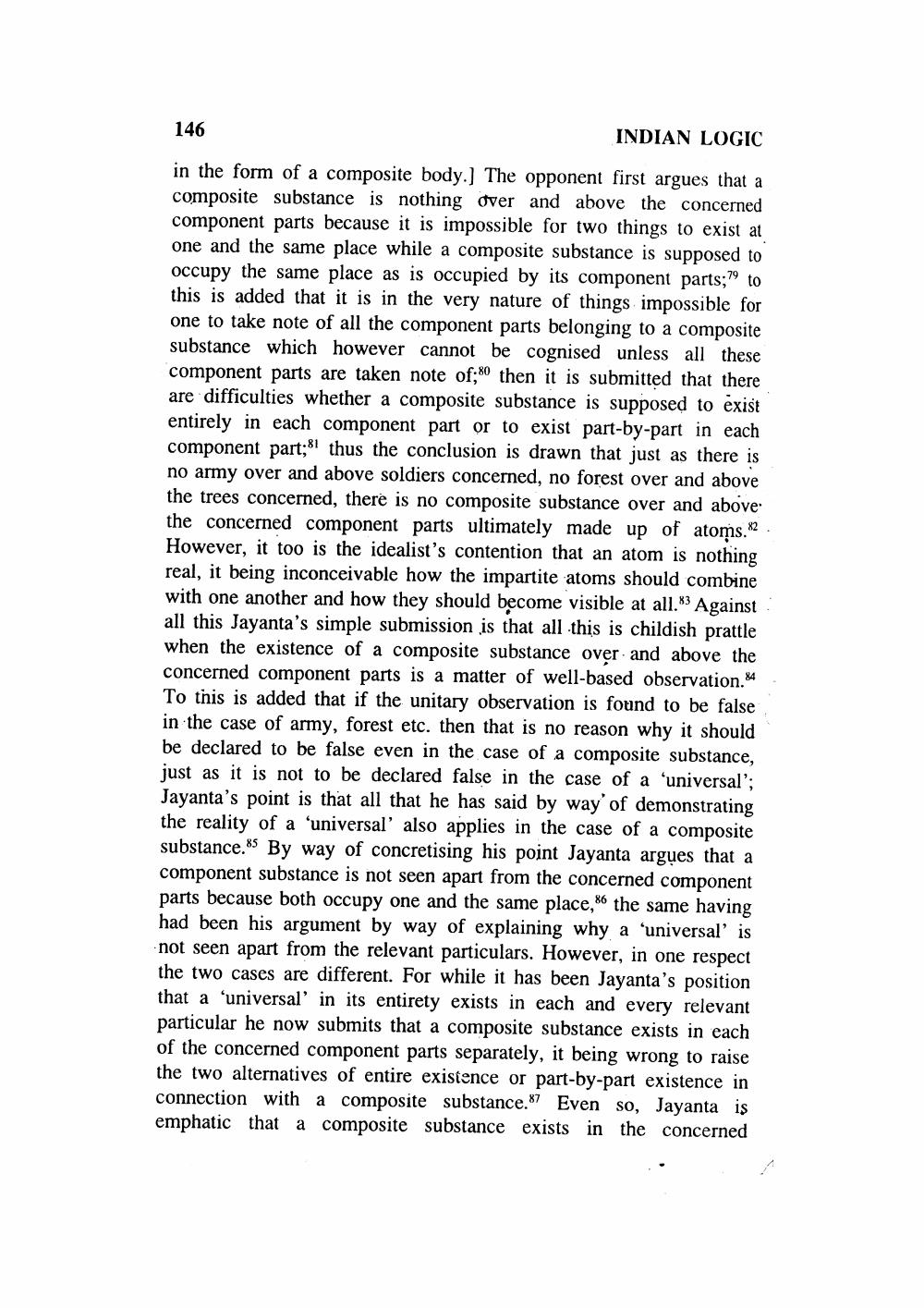________________
146
INDIAN LOGIC
in the form of a composite body.) The opponent first argues that a composite substance is nothing over and above the concerned component parts because it is impossible for two things to exist at one and the same place while a composite substance is supposed to occupy the same place as is occupied by its component parts;79 to this is added that it is in the very nature of things impossible for one to take note of all the component parts belonging to a composite substance which however cannot be cognised unless all these component parts are taken note of;80 then it is submitted that there are difficulties whether a composite substance is supposed to exist entirely in each component part or to exist part-by-part in each component part;&l thus the conclusion is drawn that just as there is no army over and above soldiers concerned, no forest over and above the trees concerned, there is no composite substance over and above the concerned component parts ultimately made up of atoms. 82 However, it too is the idealist's contention that an atom is nothing real, it being inconceivable how the impartite atoms should combine with one another and how they should become visible at all.3 Against all this Jayanta's simple submission is that all this is childish prattle when the existence of a composite substance over and above the concerned component parts is a matter of well-based observation. To this is added that if the unitary observation is found to be false in the case of army, forest etc. then that is no reason why it should be declared to be false even in the case of a composite substance, just as it is not to be declared false in the case of a 'universal'; Jayanta's point is that all that he has said by way of demonstrating the reality of a 'universal' also applies in the case of a composite substance.85 By way of concretising his point Jayanta argues that a component substance is not seen apart from the concerned component parts because both occupy one and the same place,86 the same having had been his argument by way of explaining why a 'universal' is not seen apart from the relevant particulars. However, in one respect the two cases are different. For while it has been Jayanta's position that a 'universal' in its entirety exists in each and every relevant particular he now submits that a composite substance exists in each of the concerned component parts separately, it being wrong to raise the two alternatives of entire existence or part-by-part existence in connection with a composite substance.87 Even so, Jayanta is emphatic that a composite substance exists in the concerned




